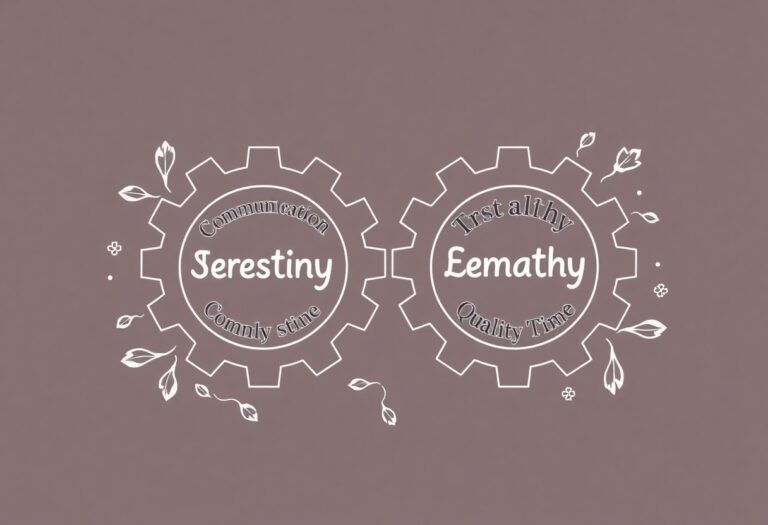How Policy Changes Impact Your Relationship
Policy changes can significantly influence your relationship dynamics, shaping everything from financial stability to social attitudes. As new laws emerge, you may find adjustments in your daily life that either strengthen or challenge your bond. For instance, changes in workplace policies may affect your time together, while new legislation around family rights can offer both protections and pressures. Understanding how these shifts impact your relationship is imperative for navigating potential challenges and embracing opportunities for growth.
Key Takeaways:
- Policy changes can influence financial stability, affecting how couples manage resources.
- Alterations in work or family policy may shift responsibilities, impacting relationship dynamics.
- Changes in social policies can alter external support systems available to couples.
- New regulations regarding health care can affect the well-being of partners, influencing relationship quality.
- Policy adaptations may require renegotiation of roles and expectations within the relationship.
Understanding Policy Changes
Policy changes encompass legislative shifts that can alter the landscape of your personal and professional life. These adjustments occasionally reflect societal values or respond to economic pressures, influencing how you navigate various aspects, including your relationship. Being aware of these changes will help you assess their potential effects on your partnership and devise strategies to adapt effectively.
Types of Policy Changes
Policy changes can be broadly categorised into several types, each with significant implications for your relationship.
- Legislative Changes
- Economic Policies
- Labour Regulations
- Family Policies
- Social Policies
Assume that recognising these types allows you to predict potential impacts on your day-to-day interactions and long-term planning.
Historical Context of Policy Changes
Historical context offers valuable insights into current policy changes, revealing patterns that can affect relationships. The evolution of family and economic policies over the decades has substantially shaped household dynamics, altering gender roles, financial responsibilities, and childcare expectations.
| Decade | Significant Policy Change |
| 1960s | Introduction of equal pay legislation |
| 1970s | Establishment of parental leave policies |
| 1980s | Rise of flexible working arrangements |
| 1990s | Increase in childcare support initiatives |
| 2000s | Legislative measures for same-sex partnerships |
Historical milestones highlight trends, demonstrating how shifts in policy reflect societal values and influence personal relationships across generations. Understanding this context equips you to better navigate contemporary changes that may arise.

Emotional Impact on Relationships
Policy changes can induce significant emotional shifts within relationships, influencing how partners navigate their bond during times of uncertainty. The alterations in laws or regulations can lead to anxiety over financial security, job stability, and overall well-being, which may result in emotional strain. As couples grapple with these challenges, understanding and managing these emotional responses becomes vital to sustaining a healthy relationship.
Trust and Communication
Open communication becomes crucial when navigating the repercussions of policy changes, as it fosters trust between partners. When uncertainty looms, discussing feelings and concerns openly can bolster your connection, allowing both parties to voice apprehensions and seek reassurance. This transparency is vital in reaffirming mutual support and understanding amidst external pressures.
Stress and Conflict
Policy changes can escalate stress and provoke conflict in relationships, particularly when dealing with financial or employment instability. Heightened anxiety levels may lead to misunderstandings or disagreements over resource management or responsibilities at home.
As stress mounts, it may trigger arguments regarding financial decisions or changing priorities. For instance, a couple facing changes in tax policy could experience disputes over budgeting for new expenses, leading to prolonged tension. This conflict can detract from vital emotional connection and lead to a downward spiral of resentment if not addressed. Establishing regular open dialogues about concerns and finding constructive solutions together is crucial to mitigate the negative impacts of this stress on your relationship.
Economic Implications
Changes in economic policies can reverberate through your relationship, particularly in how you navigate shared finances. Adjustments to tax laws, benefits, or social services directly impact household budgets, which can lead to stress or improved resource management. Understanding these shifts is crucial for maintaining harmony while adapting financial plans based on new realities.
Financial Strain
New economic policies can introduce unexpected financial strain on you and your partner. Rising costs of living or altered benefits may force you to reassess spending habits, which can create tension and disagreements if not addressed collaboratively. Budgeting together becomes imperative as you navigate these changes, ensuring that both partners feel included in financial decisions.
Employment and Stability
The landscape of employment can shift dramatically with policy changes, affecting your job security and overall economic stability. Modifications to labour laws or welfare programmes can lead to uncertainty, prompting a need for both partners to evaluate their employment prospects and adaptability to avoid unnecessary distress.
In particular, job market fluctuations following changes in policy can have a profound effect on your relationship. For instance, if a new trade agreement results in job losses in a specific sector, you may find yourself or your partner facing unexpected unemployment. This situation often demands that both of you rethink your career paths, potentially leading to a mix of anxiety and opportunity. Open communication becomes crucial to navigate any resulting instability, as you may need to support one another emotionally and financially while seeking new employment avenues, which can strengthen your bond through shared challenges.
Social Dynamics
Shifts in social dynamics can profoundly affect your relationship, particularly in how you interact with friends, family, and wider community circles. Changes in policy can alter your social landscape, influencing not only the expectations around partnerships but also the resources available for support and shared experiences.
Shifts in Community Support
Community support systems often rely on policy frameworks, and changes can lead to reduced access to resources. For instance, cuts in funding for local initiatives may limit opportunities for camaraderie, leaving you and your partner to navigate challenges more independently, which can strain your relationship.
Changes in Social Norms
Transformations in social norms can significantly reshape your relational environment. As societal attitudes evolve, so too do expectations around gender roles, parenting, and partnership dynamics. You might find that what was once considered acceptable or traditional is now viewed as outdated. Such shifts can create tension, particularly if you or your partner feel pressure to conform to new standards, which may not align with your values. For example, the increasing acceptance of diverse family structures has reshaped conversations about commitment and parenting, potentially affecting your decisions and interactions within your own relationship.
Adapting to Changes
Adaptation becomes necessary as policy changes arise, affecting your relationship from various angles. Recognising that both partners may face different challenges helps create a more supportive environment. Your ability to adjust hinges on communication and understanding, enabling you to not only survive but thrive in the face of change. Whether it’s navigating new work policies or shifting social norms, embracing flexibility and resilience will strengthen your bond.
Strategies for Couples
Implementing practical strategies can significantly ease the transition during policy shifts. This involves setting aside regular time to discuss feelings and concerns openly. Create joint objectives where both partners contribute to tackling new challenges. Encourage a united front, fostering collaboration and understanding to enhance emotional intimacy.
Seeking Professional Help
Engaging with a relationship expert can provide tailored guidance when navigating policy changes. Professional support offers valuable tools and insights to help you understand underlying issues, fostering better communication and coping mechanisms.
Professional counselling can facilitate deeper discussions about the changes impacting your relationship, enabling you to confront fears and uncertainties together. A therapist can introduce proven techniques, such as cognitive behavioural strategies, to help reframe negative thoughts associated with change. In some cases, couples may benefit from workshops or group therapy, allowing you to connect with others facing similar issues, reinforcing the sense that you’re not alone in the journey.
Long-term Effects
Policy changes can create lasting impacts on relationships, often reshaping how partners interact and respond to challenges. Over time, these changes may lead to shifts in values, priorities, and expectations, which can either strengthen bonds or create rifts. Understanding these effects is vital for navigating the evolving dynamics within your relationship.
Resilience in Relationships
Adapting to new policies can foster resilience in relationships. Facing challenges together, you develop stronger communication skills and a deeper understanding of each other’s perspectives. This shared experience enables you both to support one another more effectively, enhancing emotional bonds.
Learning and Growth
Policy shifts often lead to significant learning opportunities for partners. By facing uncertainties and adapting to new circumstances, you gain valuable insights about yourselves and your relationship. This process encourages both personal and relational growth, allowing you to cultivate a deeper connection over time.
Exploring how policy changes affect your relationship can highlight areas for personal development and mutual understanding. Engaging in honest conversations about the implications of these changes often leads you to discover new strengths and shared goals. Couples who actively reflect on their experiences tend to emerge from challenges more united and equipped for future hurdles, continuously evolving together as circumstances change.
To wrap up
As a reminder, policy changes can significantly shape your relationship dynamics, affecting communication, trust, and shared values. Staying informed about new laws or regulations enables you to navigate these changes effectively, ensuring that your relationship adapts positively. By engaging in open dialogue with your partner about these impacts, you foster understanding and resilience, ultimately strengthening your bond in the face of external challenges.
FAQ
Q: How can policy changes affect communication in a relationship?
A: Policy changes can shift the dynamics of communication in a relationship by altering how partners express feelings and needs. For instance, changes in workplace policies may lead to increased stress or time constraints, which can affect discussions about personal matters and emotional support.
Q: What impact do policy changes have on financial stability within a relationship?
A: Financial-related policy changes, such as tax reforms or welfare adjustments, can directly influence a couple’s budget and spending habits. This can lead to disagreements about financial priorities, potentially straining the relationship if couples do not adapt together.
Q: In what ways can policy alterations influence the roles of partners in a relationship?
A: Policy changes, especially those relating to parental leave or work-life balance, can alter the expectations and responsibilities of each partner. This might result in one partner taking on more household duties, which could lead to tension if not openly discussed.
Q: How do policy changes impact long-term planning in a relationship?
A: Changes in policies, such as those affecting retirement funds or healthcare, can significantly alter a couple’s approach to long-term planning. Partners may need to reevaluate their goals and savings strategies based on new regulations and benefits offered.
Q: What role does awareness of policy changes play in relationship harmony?
A: Being aware of policy changes allows couples to proactively address potential issues and navigate challenges together. Open discussions about how these changes affect daily life can foster understanding and strengthen the relationship.







